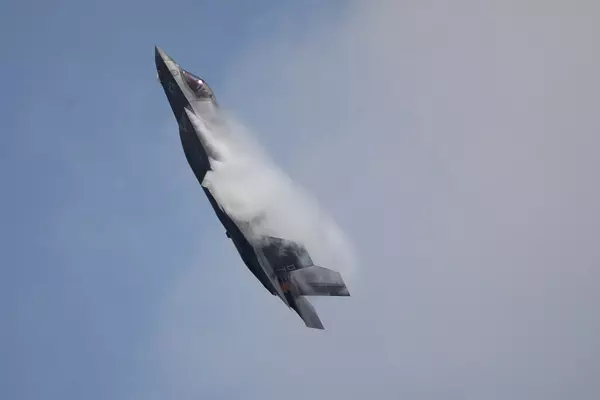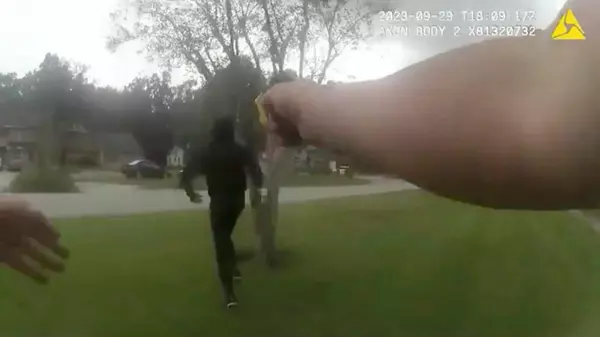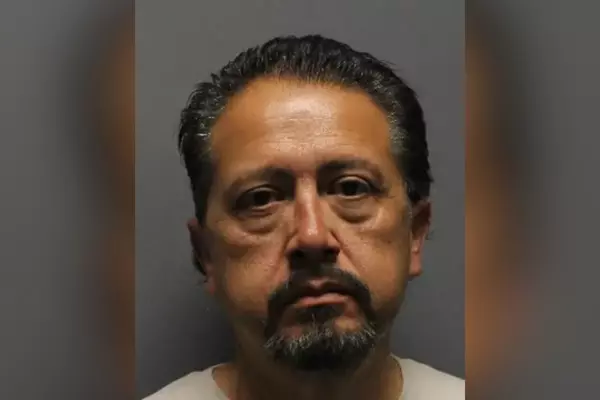
Taking a casual glance at the elegant Kyivans queueing outside the lemon-yellow neoclassical theatre perched above Independence Square, an onlooker would have few hints that there was a war on.
But the opera that premiered at the International Centre of Culture and Arts last week is inextricably bound up with the deadly events of Russia’s full-scale invasion of Ukraine.
Gaia-24 was inspired by the destruction last year of the Kakhovka dam on the Dnipro River, and the resulting human and environmental disaster as waters from the 832 sq mile reservoir flooded vast areas downriver.
The two-hour work is a musical collage of folk song and cabaret tunes; classical works such as Schoenberg’s Pierrot Lunaire and Schubert’s Winterreise; chunks of techno and death metal; and even a snatch of Dua Lipa.
A multi-talented cast of dancers, actors, musicians and singers performed much of the work naked – using violins, cellos and basses not just as musical instruments, but as elements in a complex choreography.
Gaia-24 is the latest opera by Roman Grygoriv and Illia Razumeiko. They also created Chornobyldorf, a work that has recently completed a European and New York tour. Along the way, it won the Royal Philharmonic Society’s award for the best opera production of 2023.
Chornobyldorf, written before Russia’s full-scale invasion, “was a story about an imaginary post-apocalypse”, said Razumeiko, speaking at the company’s HQ at the Composers’ Union of Ukraine in central Kyiv the day after the premiere of Gaia-24. “And then, with the invasion, this imaginary post-apocalypse became a reality.”
As Russian troops ploughed through the Chornobyl exclusion zone headed for Kyiv, and occupied the Zaporizhzhia nuclear power plant, Chornobyldorf, which summoned up a dystopian future in which humans try to piece together fragments of shattered cultural memory after a nuclear catastrophe, began to seem horribly prescient.
When the invasion began, Razumeiko, Grigoriv and their colleagues scattered to western Ukraine and elsewhere in Europe, returning to Kyiv after the Russian withdrawal from the city in April 2022. At that point, “we didn’t plan to make a big opera. We didn’t have the resources, or the inspiration, to do that”, said Razumeiko.
But then, on 6 June last year, the Kakhovka dam was blown up, “and our reaction was immediately that we must do something”, said Razumeiko. “I visited these places already one week after the explosion,” he added; his parents’ village, Bilenke, is on the banks of what was the Khakovka reservoir. Both men, who have collaborated for a decade making opera and music theatre, had spent time there composing, and sequences of video for Chornobyldorf were filmed in the region.
“It’s a complicated story because the exploding of the Kakovkha dam was ecocide. But so was the building of it by Stalin – it was bad for the river, the area, the historical sites that were submerged,” said Razumeiko. The dam construction began in 1950 and was completed in 1956, providing water for the Kavovkha hydroelectric plant.
“It was a kind of violence against nature, as was Chornobyl, and the shrinking of the Aral Sea. All of these events are products of Russian colonisation, in different forms.”
Gaia-24 includes video projections of a piano sinking gradually into river waters; and aerial drone shots of performers lying in the cracked, dried-out mud of the reservoir bed – filmed around the island of Khortytsia in the Dnipro, opposite the city of Zaporizhzhia.
But the opera is far from a literal depiction of the cataclysmic events of summer last year. The first act is a wild tapestry of folk music and dance, drawing elements from Roma, Yiddish, Bulgarian, Crimean Tatar and other traditions, as well as cabaret songs. At one point, The Hurdy-Gurdy Man from Winterreise, the famous Ukrainian song Shchedryk by Mykola Leontovych, and a phrase from the minimalist composer Steve Reich, are deftly woven together.
The second act, the opera proper, begins with the performers lying still and naked on stage with their instruments. The sound begins almost imperceptibly as the cast draw their bows across their own skin, rather than the strings. Shifting to their instruments, they begin to create a soundscape of high, uncanny harmonics. A violinist, still recumbent, begins playing Bach’s Partita in D minor. Gradually the action moves on and the performers begin a traditional Ukrainian circle dance, the arkan, but to what Grigoriv described as a kind of “abstract techno”, a low-frequency, insistent throbbing beat.
The music and choreography for the piece were created simultaneously. All the performers, whether trained musicians or not, use musical instruments. “If you take a cello or violin and to give it to a dancer who has no experience and training in this instrument, he or she can play very beautifully and find another way to produce a very beautiful sound,” said Razumeiko.
Untrained musicians can “work with the instruments as sound objects, as choreography objects, as extension of the body”, he added.
The third part of the opera is a raucous, furious, joyous mix of punk, rock, rap and K-pop references, before the mood changes again to bring the work to a melancholy, intimate close.
Gaia-24 opens Rotterdam’s O. festival of opera and music theatre this week – albeit without two team members, men of fighting age who have not been granted permission to leave the country in time for the performance, in the wake of Ukraine’s new mobilisation laws. It will also tour to Vienna’s Musiktheatertage in September and, possibly later, other European venues.







